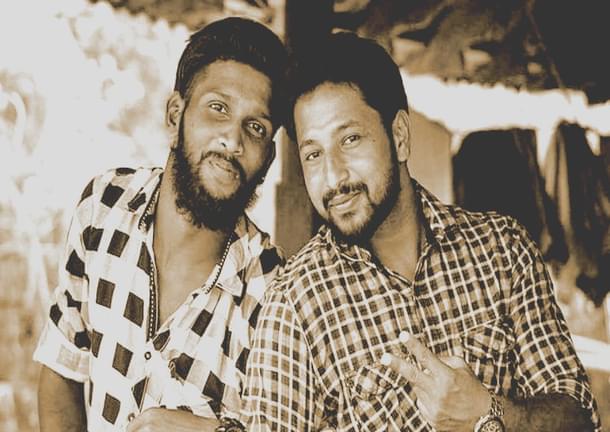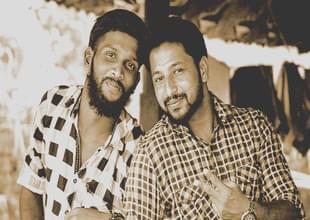News Brief
Kerala: Why A Political Murder Case In Which A Left Front Cadre Is Accused Has Been Transferred To CBI By HC
M R Subramani
Oct 01, 2019, 05:23 PM | Updated 05:23 PM IST
Save & read from anywhere!
Bookmark stories for easy access on any device or the Swarajya app.


After nearly seven months, 54-year-old K Sathyanarayanan could sleep in some peace on Monday (30 September) night, thanks to the Kerala High Court ordering a Central Bureau of Investigation (CBI) probe into the murder of his son.
Sathyanarayan’s son Sarath Lal and his friend K Kripesh, both Youth Congress activists, were murdered by a group of persons at Periya village in Kerala’s Kasaragod district on 17 February this year.
22-year-old Kripesh and 24-year-old Sarath Lal were attacked and left with bleeding injuries by their assailants. Kripesh died on the way to Kasaragod general hospital and Sarath Lal breathed his last while being shifted to a private hospital in Mangaluru.
On 19 February, a Communist Party of India-Marxist (CPI(M)) activist, Peethambaram, was arrested by the Kerala police in connection with the incident.
Political vendetta was reported to be the reason for the attack on the two Youth Congress activists. Peethambaram had been injured in a scuffle with the two youth and he allegedly avenged that incident by murdering them.
The scuffle was a sequel to the long-standing rivalry between the CPI(M) and the Congress, which is strong in the region where the incident took place.
The investigation was subsequently handed over to the Kerala Crime Branch police, which filed cases against 11 persons for the murders.
The investigations and the chargesheet filed by the SIT had left Sathyanarayan and K Krishnan, father of Kripesh, unhappy.
One of the reasons for the parents to petition the High Court was that the SIT treated the political murders casually. It seemed to show no intention to get those involved in the crime punished.
The parents of the youth argued that their children‘s murder could not have been organised and executed by these CPI(M) leaders without assistance from other leaders in the party. Since the murdered belonged to the Congress, they argued that the CPI(M) itself might be involved.
They pointed out that the top leaders of the CPI(M) in the area had reached the spot immediately after the crime and had taken the accused to their party office. Most of those accused in the chargesheet were CPI(M) members and hence, there was reasonable suspicion of the party’s involvement.
Kerala High Court Judge, Justice B Sudheendra Kumar also found fault with the investigating officer not recording properly the views of the forensic surgeon Dr K Gopalakrishna Pillai, who performed the autopsy on the bodies of Kripesh and Sarath Lal.
The police had reported that both the victims were murdered using iron pipes and swords. The objects used in the attack were reportedly recovered from the accused.
But Pillai said the injuries caused on the deceased could not have been caused by the iron pipes. The weapons were not shown to the forensic surgeon despite police having recovered them when his opinion was sought.
The judge said the police seemed to have blindly gone by the confession of the prime accused in filing the chargesheet. He agreed with the parents of the murdered youth that chances for conviction of the accused going by the chargesheet were bleak.
The judge also found fault with the SIT for failing to recover anything from three of the key accused. The chargesheet was filed without recovering any incriminating material against the three, Justice Kumar observed.
Even the clothes the accused wore during the attack were not recovered. There were contrasting statements on this with the chargesheet saying one of the accused had confessed to burning their clothes, while the prosecution submitting that no such statement had been made in this regard.
The judge said that seven of the prime accused were arrested only after they surrendered before the investigating officer. This affected the credibility of the investigation and failed to instill confidence in the investigators.
Also, one of the witnesses said he had seen five persons travel in a convoy but the SIT did not name four of them as accused. The investigating officer gave the excuse to the court that the witness can not be fully trusted, making the judge wonder how the officer could even make such a statement.
Accepting the fact that courts must use their powers to order a CBI probe sparingly, Justice Kumar said that the investigations in the case were a ‘sham’.
Stating that the investigations cannot lead to a fair trial, he said the credibility and confidence of the petitioners in the investigations had been lost. Justice Kumar also said he had strong reservations on the impartiality and fairness of the investigation by the Kerala police due to political fallout.
He said that submitted materials were sufficient to prove that no fair investigation had taken place and ordered the CBI Superintendent of Police at Thiruvananthapuram to take over the probe.
M.R. Subramani is Executive Editor, Swarajya. He tweets @mrsubramani





